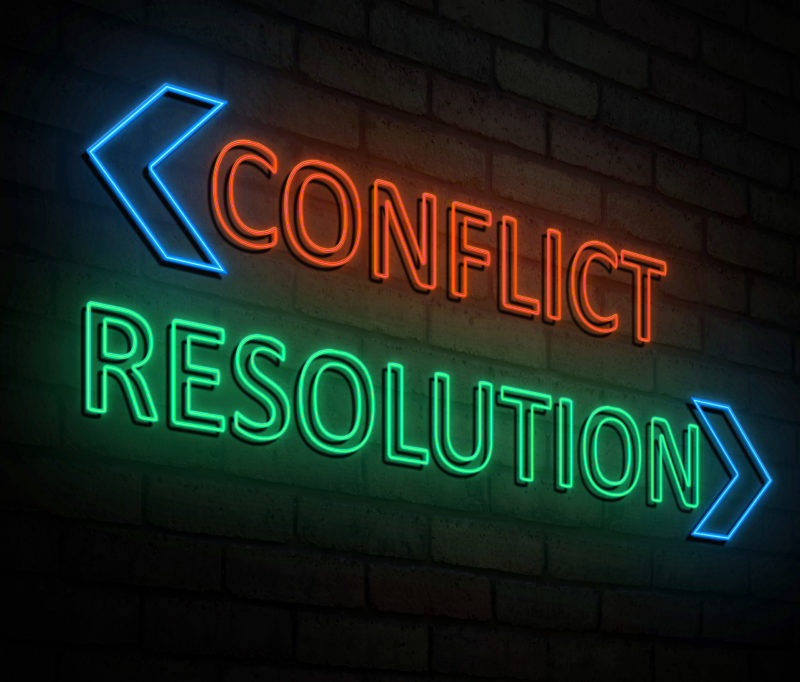The coronavirus pandemic (COVID-19) continues to have, a massive impact on our global, national, state, and local economies. Undoubtedly, along with its devastating health and social effects, this dangerous virus will also bring a wave of disputes and conflicts. So, in an age of social distancing, how are these disputes to be handled?
Historically, parties have resorted to the court system as a forum for resolving their disputes. However, Florida’s judicial system, just like every other industry, has been forced to take measures to mitigate and slow the spread of the coronavirus. Specifically, on March 24, 2020, Florida Supreme Court Chief Justice Charles Canady issued Administrative Order No. AOSC20-17, which (amongst other things) suspends grand jury proceedings, jury selection proceedings, and criminal and civil jury trials through Friday, April 17, 2020. In addition, Administrative Order No. AOSC20-17 directs the state courts to cancel or postpone court proceedings, other than “essential and critical proceedings,” unless they can be effectively conducted remotely without the necessity of in-person court appearances. Obviously, this will limit a litigant’s ability to bring a matter before a judge over the next few weeks, and possibly much longer.
The pandemic has not brought all lawsuits to a standstill. Some courts are continuing to hold telephonic and videoconference hearings, through conference calls, Courtcall, and videoconference programs such as Skype, Zoom, BlueJeans, and WebEx. Depositions can also be taken remotely. Administrative Order No. AOSC20-17 allows notaries, and other qualified persons, to administer oaths remotely so long as the qualified person can identify the witness by seeing and hearing the witness via audio-video communications. Thus, while a litigant’s ability to bring about a final resolution to a dispute through the court system may be limited in the short term, judges and lawyers are finding ways to allow some lawsuits to proceed remotely, without requiring physical gatherings in courtrooms and conference rooms.
In addition, parties can consider various alternative dispute resolution (“ADR”) methods for resolving their conflicts, including arbitration and mediation. Arbitration is a private process authorized by Chapter 682, Florida Statutes, through which parties select an independent neutral arbitrator (or a panel of arbitrators) to make a decision about their dispute. While similar to a trial, an arbitration is typically a quicker and less formal proceeding than a traditional trial before a judge. A significant benefit to arbitration is that most, if not all, of the proceeding can be conducted outside of the physical presence of an arbitrator. Arbitrators are able to use videoconference programs to hold final arbitration hearings remotely and arbitration awards are issued via email. Further, the parties may agree to waive expensive depositions and evidentiary hearings. The parties may also agree to have the matter decided solely on legal briefs. The whole arbitration process can be conducted without the parties, lawyers, or arbitrator having any physical contact with each other.
Likewise, mediation is an ADR process that can be utilized by parties to bring about a quick and cost-efficient consent resolution to their dispute. Mediation is a private process authorized by Chapter 44, Florida Statutes, whereby the parties use an independent neutral mediator to help discuss and resolve their dispute. Unlike an arbitration, however, a mediator does not rule on any of the issues or enter an award in favor of a party. A mediator helps to facilitate a voluntary resolution of the issues, but it is ultimately up to the parties to reach a binding agreement. Some mediators have the ability to conduct telephonic and videoconference mediations. If an agreement is reached, a settlement agreement can be prepared by counsel and executed by the parties without ever having to shake hands or physically pass a pen and paper between parties.
Importantly, both arbitration and mediation must be agreed to in advance by both parties. If one party will not consent to arbitrate or mediate, then the dispute can only be resolved by a judge through the judicial process. That being said, arbitration and mediation are favored under the law. Judges are required to order parties to arbitration if the contract in dispute provides for arbitration. Similarly, nearly every pre-trial order issued by a judge in Florida requires mediation prior to a trial.
In this new era of social distancing, disputing parties continue to have options for bringing their claims and seeking a resolution of their conflicts. Different options make sense for different people with varying situations and issues. The litigation attorneys at the Winderweedle law firm are here to discuss these various dispute resolution options with you and help you decide what makes sense for you and your business during these difficult times.
Jeffrey Deery, Esq.
jdeery@whww.com
(407) 246-8669
Brandon S. DeGel, Esq.
bdegel@whww.com
(407) 246-6569
- Bringing Clarity to Charity – Your Guide to Serving on a Not-for-Profit Board - June 2, 2022
- Thunder Road – Accelerating Toward the Promised Land - July 1, 2021
- Ground Control to Major Tom – Client to Lawyer Communication Protocol - December 9, 2020
- Did Your Property Taxes Increase This Year? - August 25, 2021


